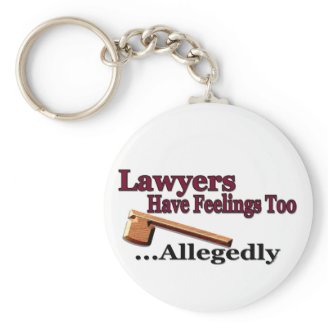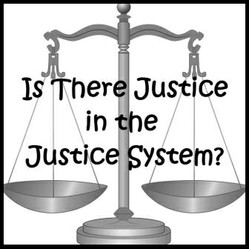In Israel, we do not have juries, but a panel of three judges sit on criminal cases. I have found that most of the players in the real court-room dramas are sincere and doing the best they can.
Prosecutors try to put away the bad guys and the defense lawyers do what they were hired to do - get the accused off or with the lightest possible sentence. Defense lawyers are not defendants of justice but of accused men and women, some of whom are truly guilty. As such, when I have been approached by defense lawyers asking if I would serve as an expert witness, most do not call me back when I tell them that I will only testify to what I see and I will not bend the truth of what I see even a smidgen.
When I have been brought into court as expert witness, I have found that the judges do want to understand the psychological elements at play and they weigh what I say up against traditional legal evidential rules. Given my clinical experience with survivors of sexual trauma, perpetrators, and their families, I have been able to point out to the court aspects of survivor and perpetrator behaviors to which they would not have paid any attention.
Lawyers and judges are people with their own individual histories, biases and beliefs. I wonder how many of them have, themselves, or someone close to them, experienced sexual trauma. I wonder how their own experiences with sexual trauma affects their decision making processes in court.
It is true that lawyers, whether for the defense or the prosecution, will work harder for people they like and may even be lazy when they do not like the individual on whose behalf they are supposed to be working.
I have seen judges find a defendant not guilty, and a head prosecutor not take a case to trial, just because they were not yet able to conceive that, on the one hand, a father could sexually abuse his son and, on the other hand, a mother could sexually abuse her children.
These happened many years ago and the courts today are more prepared to handle such cases. Just as they are more able to run calm and thoughtful trials of sexual harassment in the workplace (even involving famous suspects), cases of wife rape and acquaintance rape - issues that were not well handled in the past.











 Visiting an Art Gallery With a Two-Year-Oldon 07/27/2015
Visiting an Art Gallery With a Two-Year-Oldon 07/27/2015
 Using the News to Enhance Jewish Identity in Jewish Kidson 07/24/2015
Using the News to Enhance Jewish Identity in Jewish Kidson 07/24/2015
 Xi'an - Not Just Terracotta Warriorson 06/09/2015
Xi'an - Not Just Terracotta Warriorson 06/09/2015
 Sew Your Own Wedding Dress - or Your Daughter'son 02/06/2015
Sew Your Own Wedding Dress - or Your Daughter'son 02/06/2015



What do you think now? Is justice usually served or purely coincidental?
Thanks so much for your comments, Hollie. Glad you shared your experiences here. That seems like it was a fascinating workshop. Your example reminds me of the movie starring Jody Foster, "The Accused" where the bystanders were found guilty of encouraging rape when they did not commit the crime itself.
Hi Sheri,
As I read each paragraph in your article, I was saying to myself, yeah, but, and then I'd scroll down and see that you had addressed the issues that were forefront of my mind. Biases and experiences, I find particularly pertinent when it comes to discussing offences of a sexual nature, or offences against women and children, of either gender. Whether evidence is presented before a jury a judge or both, we need as you suggest, to consider that each individual brings their personal experiences into the equation. Just because a juror does not have a criminal record does not necessarily mean that they are ideally placed to reach conclusions as to guilt or innocence. Their perception of events, regardless of the evidence, may be coloured by their own experience and attitudes about gender roles and sexual behaviour.
I noted Brenda's comments and remember attending a Magistrates workshop which was hosted by Greater Manchester Police (Cyber crime unit) they were presenting examples of the types of cases they were pursuing and bringing before the courts, which included indecent images of children on the internet, and discussing how they were gathering evidence, and tracking pedophiles. They talked about how they'd brought successful cases against those who were viewing these images (even though they'd not taken or posted the images on the internet, themselves) And more than one magistrate asked why the voyeurs were being prosecuted, after all, they didn' t take the photographs. Some seemed unable to comprehend how viewing these images, not only perpetuated the offences, but "normalised" this behaviour. Sorry my post is so long, your article is really interesting. I could go on forever! :)
He's already in the system. Here's to hoping he just stays away from you and everyone else!
Thanks for the advice Sheri. Knowing my own Order of Protection may keep other women safe eases my mind some. I will think on it some more.
Thanks for sharing this with me and for your compliment. Sorry you had to experience this. Regarding this guy and Orders of Protection - if he does not obey the order to stay away, and you see him closer to you than he should be, you report this to the police. If it happens several times, then that is "stalking", something else that is against the law. If he is not a stalker, her will probably just go away. He already has a mark against him and if he does this again, your Order of Protection will be supportive evidence in any file another woman opens in the future. Keep the papers you got from the court. I don't know if you necessarily should go the route of charging him with assault. I could go on here, but maybe I should write up another article.
I decided to read this article because a man very recently tried to sexually assault me. Two judges gave me an Order of Protection but we all know that is only worth what the man feels it is worth. I want to press assault charges but most people are saying I need to let it go. My best friend is concerned this man might come after me if I make him mad. I have been so confused as to what I should do. He put his hands on me and that is not acceptable. I do not know him personally, he mowed my lawn for the past two summers. I believe God intervened or that creep would have raped me. After reading this fine article, I feel I need to pursue charges to keep him from doing worse to another woman. Thank you so much Sheri. You are a blessing.
The plea bargain itself is not at fault. If the victim was involved in the plea bargain and could veto the agreement, it could be a form of justice - saving the victim the added trauma of having to testify. Unfortunately, nobody asks the victim what he or she thinks.
It is the same, the plea bargaining aspect of the system is sickening. If criminals plea guilty they are often given a plea deal which means a lesser sentence or punishment.
The same way the Church eventually dealt with its problem of pedophile priests. Difference, though, the priests had "witnesses/victims" who could speak up. It is still too hard to police the Internet, but I think there are probably people working on figuring out how - with the help of the best hackers, probably. It will have to be an international conjoint effort.
I guess I didn't delete it. It is truly horrifying. How do we even begin to deal with the problem?